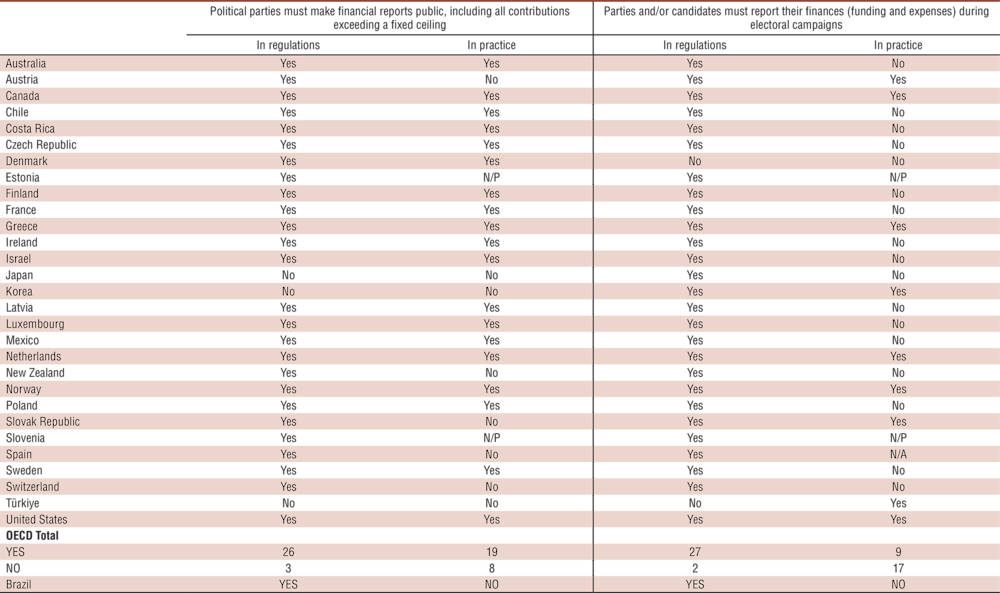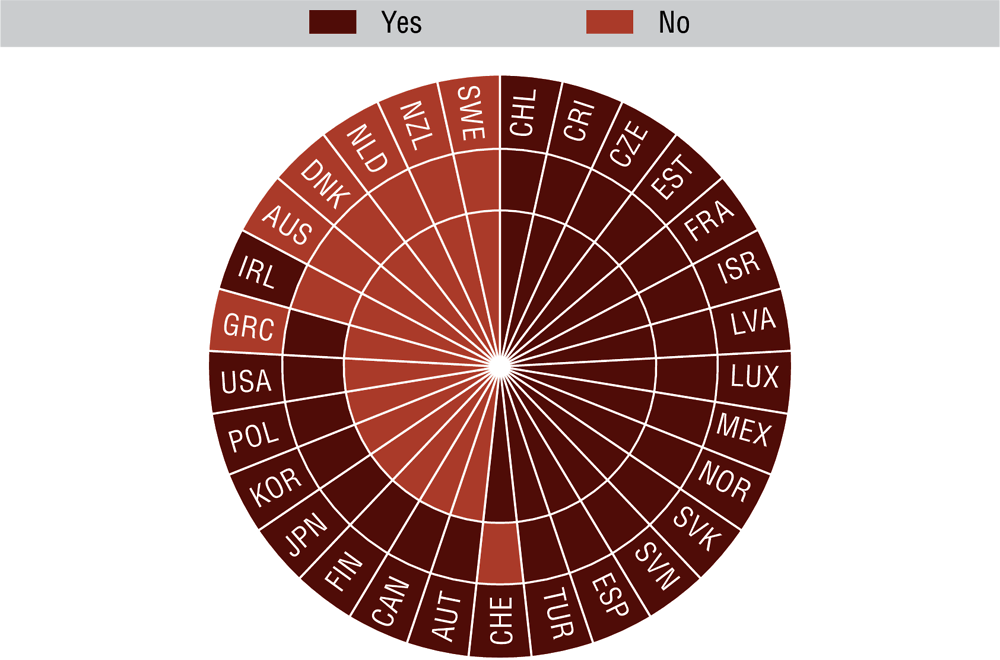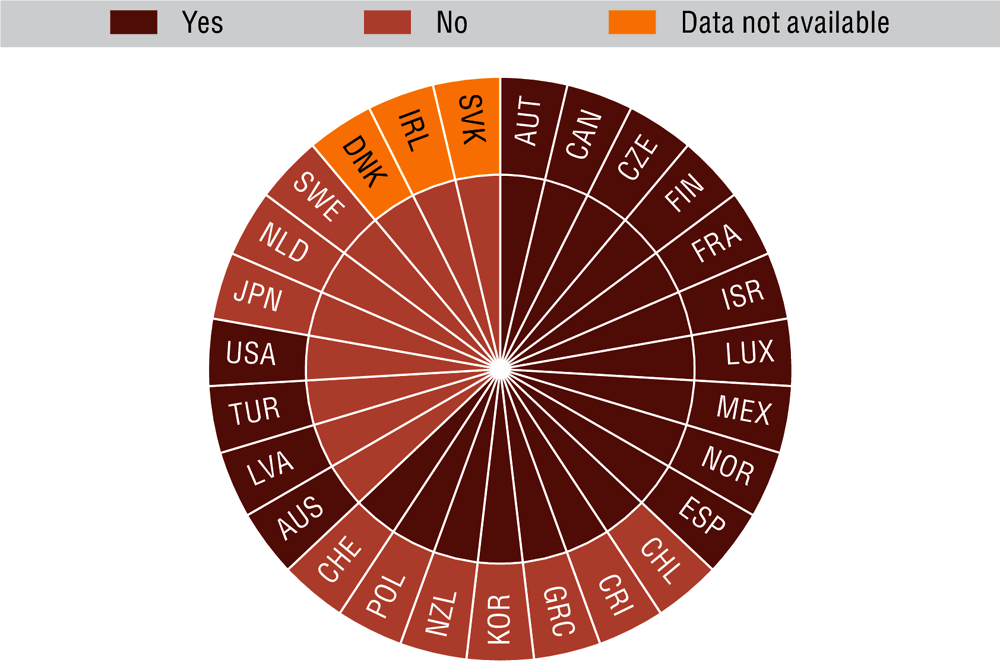Financial contributions allow individuals and entities to support candidates and political parties running for election and to represent their ideas and interests. However, if the financing of political parties and electoral campaigns is not adequately regulated, it may become an instrument for undue influence and policy capture. Ensuring transparency in the financing of political parties and electoral campaigns is therefore crucial to preventing undue influence and helping governments to strengthen and enhance public integrity.
Countries can enhance the transparency and integrity in the financing of political parties and election campaigns by requiring political parties to disclose financial reports, banning contributions from foreign actors and publicly owned enterprises, and enforcing regulations through an independent oversight body. In general, OECD countries have strong political finance regulations, but have room to improve their implementation and oversight.
Political parties are legally required to make their annual financial reports public in 26 out of 29 OECD countries with available data (90%). In practice, these reports were only published by all political parties in 19 countries. There are also legal requirements to disclose the funding and expenditure of election campaigns within set timelines in 27 out of 29 OECD countries (93%), but in practice these reports were delivered by all political parties and candidates within the timelines defined by national regulations for the past two election cycles in only 9 countries (Table 4.10).
In 15 out of 29 OECD countries with available data (52%), anonymous donations are completely banned, and all contributions made to political parties and candidates must be registered and reported. Political parties are prohibited by law from receiving financial contributions from publicly owned enterprises in 22 out of 29 countries (76%), and from foreign states or foreign enterprises in 23 countries. Fourteen OECD countries impose all three types of bans in their legal frameworks, while five do not impose any of them (Figure 4.11).
There is an independent oversight body to oversee the financing of political parties and election campaigns in 17 out of 27 OECD countries (63%). Fourteen countries have published information on the number of cases related to breaches of political finance regulations, the number of investigations conducted and a breakdown of the different types of sanctions issued. Three OECD countries have no independent oversight body and nor do they publish any of this type of information on political finance (Figure 4.12).



